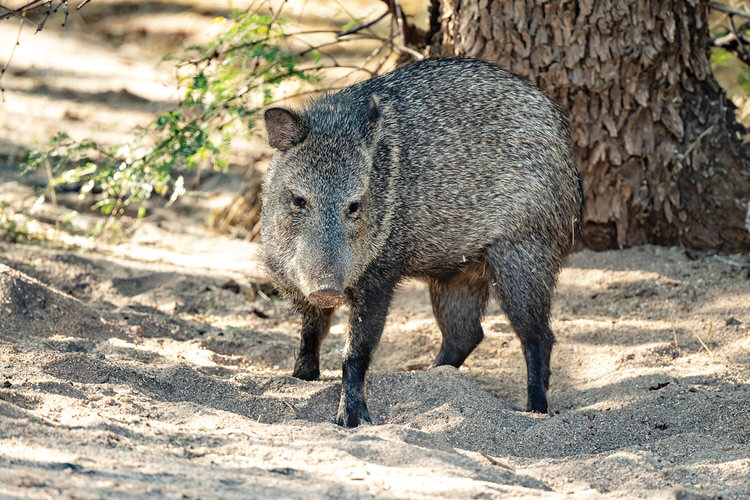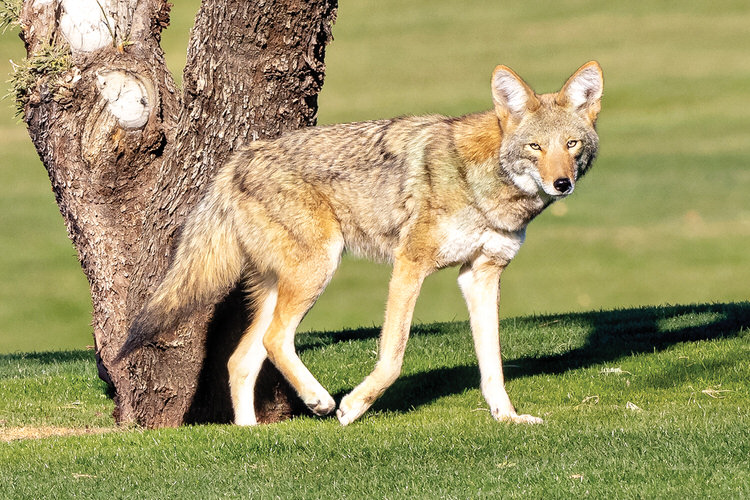
Javelina (photo by Jim Hoagland)

Coyote (photo by Jim Hoagland)
Jim Hoagland
Residents have asked about feeding the birds in their backyard. I would like to discuss feeding wild mammals and birds, and nature in general. Starting with the least controversial of all feedings in the wild, hummingbirds. Who does not like to watch the hummingbirds buzz around our feeders? What is important is to use the right sugar mixture and refill and clean the feeder regularly. The recommended formula for hummingbird food is: one part sugar, four parts water. No coloring is needed, and I highly discourage the use of it. Keep the feeders clean and maintained by changing the solution every day or two, especially in hot weather. Clean the feeders every time you fill them. Don’t use soap to clean it. Use a mixture of one part vinegar to four parts water and double rinse. Use a brush or similar device to clean the surfaces and a pipe cleaner for the orifices and the guard tips.
Have you decided to feed the birds in your backyard? When I am asked about this, my answer is “are you willing to accept the consequences of feeding them, like pack rats (attracted to spilled feed), snakes (attached to pack rats), and even the Cooper’s hawk (attracted to birds collecting around feeders)?” Keep in mind that you are creating a very tempting place for predatory birds to feed. Also, are you wanting to be a good neighbor? One resident told me about a neighbor who fed the birds, and the pigeons would come and sit on his fence making a mess. These are just a few things to think about before making that choice to feed the birds.
Diseases spread where birds accumulate in large numbers. Of particular concern currently is highly pathogenic avian influenza, a disease carried by wild migrating birds that is transmissible to other wild and domestic birds. Currently, this disease is mainly in the northern and eastern states, but it has potential to affect birds anywhere. The 2022 outbreak has resulted in the loss of 27 million chickens and turkeys, as entire flocks must be depopulated when identified as infected. In those areas where the infection has been diagnosed, disease control experts recommend not feeding wild birds.
Prior to the time our ducks moved north, I observed people feeding them French fries. Disease is the primary reason to not feed the ducks. A diet rich in carbohydrates leads to greater fecal production, and bird feces easily harbors bacteria responsible for numerous diseases including avian botulism.
Last, please, please, please do not feed our wild mammals such as coyotes, javelinas, bobcats, and other animals. Wildlife fed by people lose their natural fear of humans and become dependent on unnatural food sources. It creates dangerous situations for both wildlife and people, often setting the stage for attacks. I applaud the dog owners who keep their dogs on leashes, but I also have witnessed a dog owner letting the dog off the leash to chase a coyote. This is totally wrong and unethical.
Enjoy our wildlife from a distance to keep us safe and protect our wildlife.
